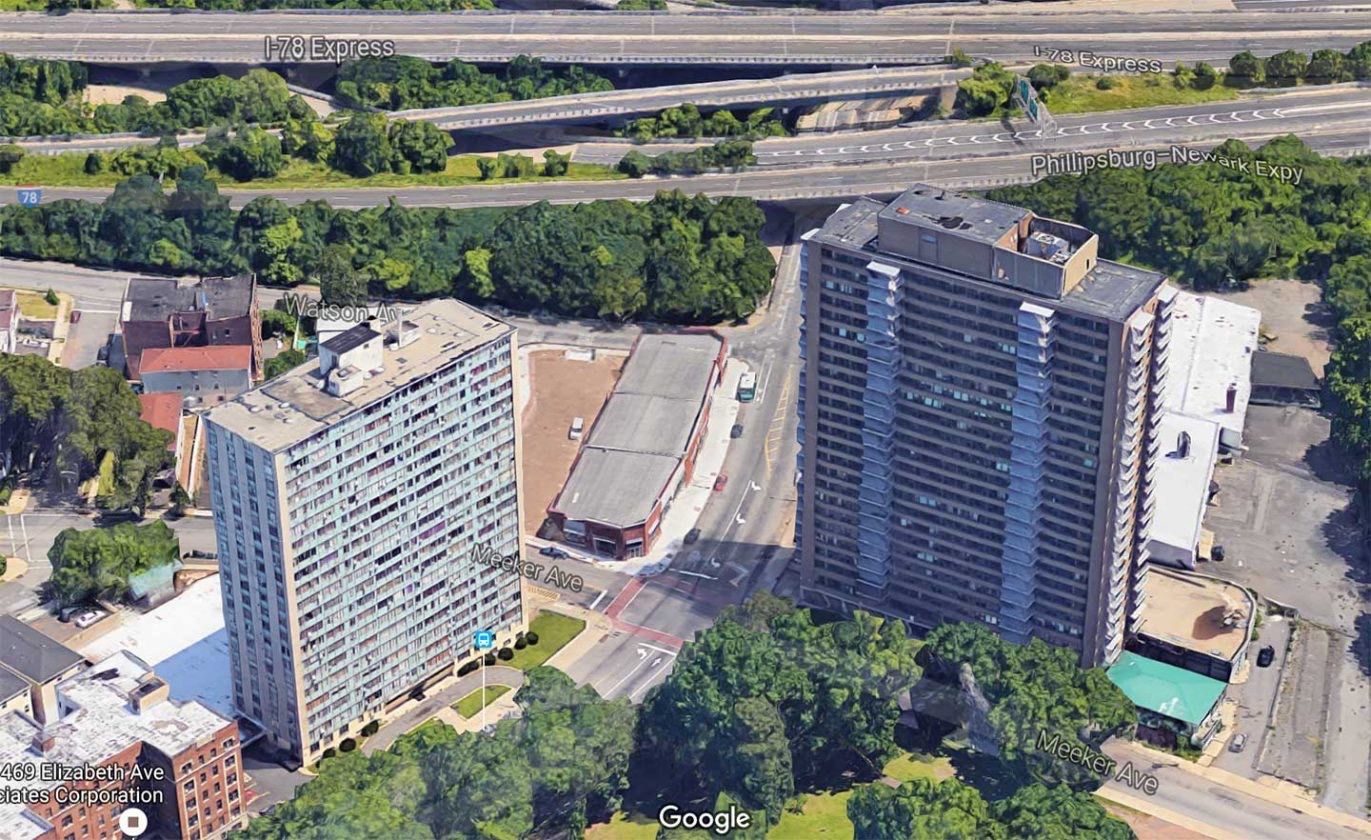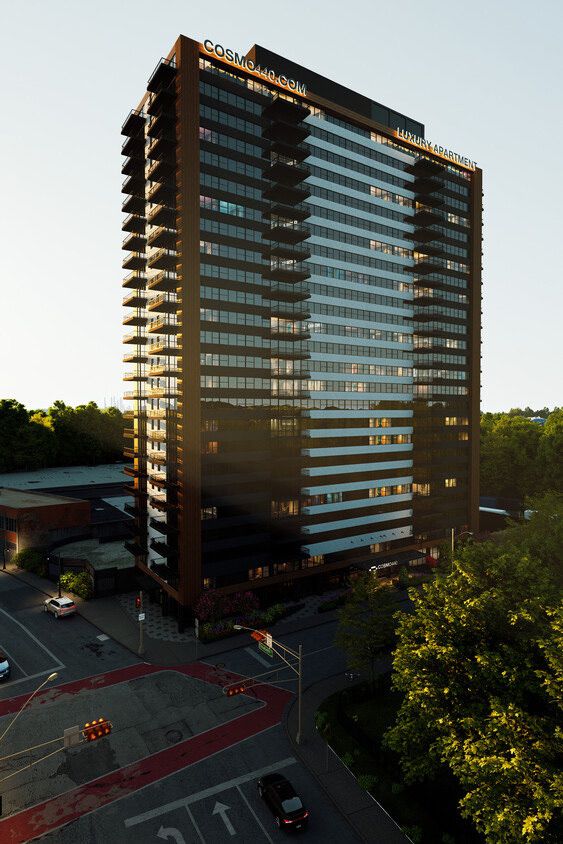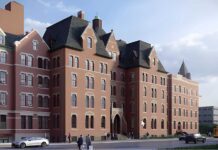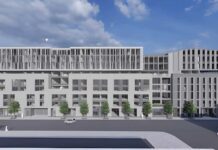
The Carmel Towers opened in 1970 at a time when Newark had a shortage of housing. Built around the same time as other affordable high-rise towers such as Hill Manor and Brick Towers that are now demolished, Carmel Towers is one of the few that still remain from this decade.
Over time, it became synonymous with drug dealing, violence, and a building management indifferent to the frequent complaints of tenants. The towers finally closed in 2011 after the Department of Housing and Development pulled federal funding after a series of failed inspections.
Those days are long gone after the building reopened after a $37 million renovation, transforming this 25-story tower into luxury apartments. But not everyone is happy with the change.

At a City Council meeting in December, when a 20-year tax abatement was awarded to the developer – 440 Elizabeth Urban Renewal, LLC – many residents bemoaned the long-term tax break that would go toward a primarily market-rate project.
Although the city’s ordinance require tax-abated apartments to designate 20 percent of the units to affordable housing, the developer only set aside ten percent of the 225 units and instead paid into a fund.
“That abatement that he’s asking for – you have to vote no,” said Jeffrey Poku, who grew up in Carmel Towers.

The rampant approval of tax abatements and the lack of truly affordable housing in the city is a growing cause of hair-pulling among Newark residents, who routinely see the City Council approving multiple tax abatements.
These issues seem to converge at this renovation project, which residents found ironic given that the original purpose of the building was to give low-families adequate housing. Deputy Mayor Allison Ladd defended the use of tax abatements, saying the project will earn the city $502,111 a year in taxes.
For some residents of the South Ward, the renovation is a sign of long-overdue progress. Other improvements that could be on the way are the proposed extension of the PATH Train to the airport, a new movie studio on the site of the demolished Seth Boyden Housing Projects, and the potential opening of an NJ Transit station along Newark Avenue near the airport.
“I’m not against this abatement – I’m in favor of this and for the restoration of this community and this neighborhood,” said South Ward Councilman Patrick Council.
Carmel Towers were built by Anthony Padula, the same developer behind nearby Zion Towers. In the 1990s, tenants frequently complained about leaks, rodents, and broken boilers to deaf ears. Longtime tenant Francine Christopher once told the Star Ledger she felt like she lived in an “underdeveloped country.”
The building’s reputation reached a low point when Nakisha Allen was shot near the entrance by a stray bullet during a drive-by shooting in 2009. The death of Allen, one of three people killed that day, inspired the creation of the Anti-Violence Coalition. Allen’s friend, Veronica Nzekwa, told the Star-Ledger the day after the shooting that she was scared to sit in front of the building.
“That’s what we live with around here,” Nzekwa said.
Councilman Council said that after Allen’s death, there was a need to “change the imagery” associated with the neighborhood. “That corridor has to come back to some kind of permanence,” said Council, before voting for the tax abatement.
For others, the luxury apartment opening in Weequahic was a cause for celebration, not concern.
“I’m just excited that someone wants to develop market-rate housing in the South Ward,” said Tenagne Girma-Jeffries, a local developer who founded the Weequahic Neighborhood Association. “I was driving by it lately and the building has been looking so good – and to make it look good is expensive.”
Girma-Jeffries said this neighborhood has the highest rate of Black and Brown homeowners in the city, whose properties she believes will appreciate as a result of similar investments. “Weequahic is a very special place,” she said. “Do you not want the project to happen at all and let this place stay vacant?”


